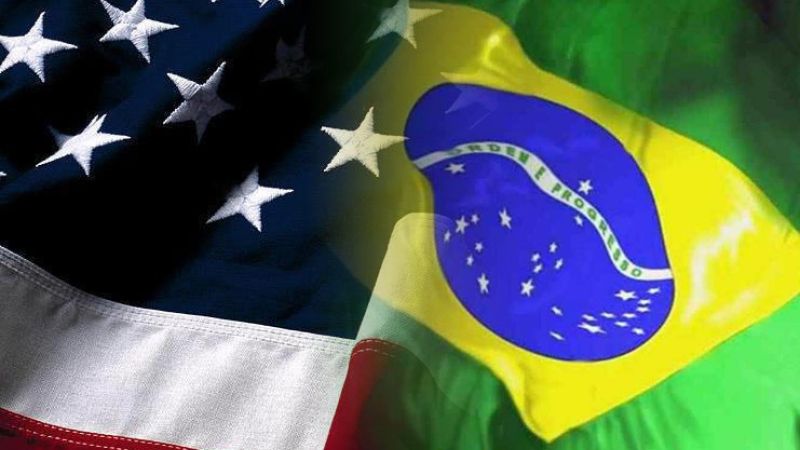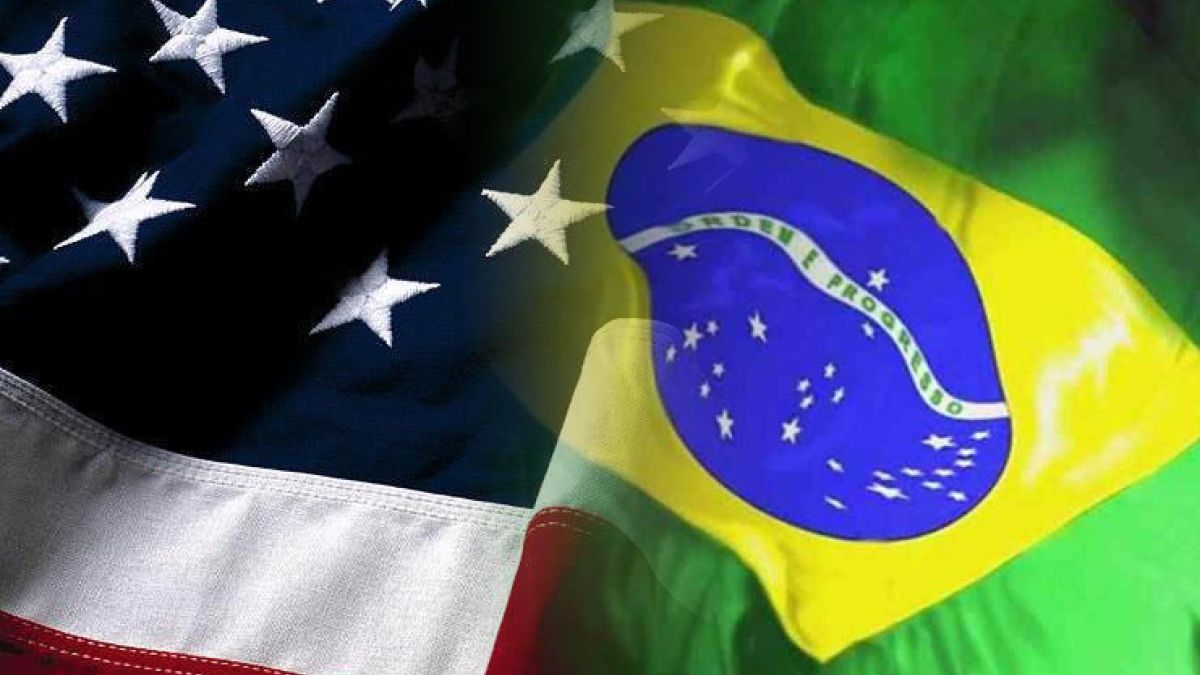This isn't from now! Brazil's BRICS+ veto is not surprising


Internet

Published at: 01/11/2024 04:52 PM
The
Brazilian government's veto of Venezuela's entry into
BRICS+ is no surprise.
This time we are going to review the course of bilateral and regional relations
to understand the behavior of the neighboring country.
Argentinian sociologist and politician Atilio Borón wrote an article called “Brazil:
a suicide veto” in which he explained that “there are very deep roots that
confront the regional and international projects of Itamaraty (Brazilian Foreign Ministry) and those of the Bolivarian Government.
This conflict, latent at times, manifest at other times, occurred since the
arrival of Hugo Chávez with his strongly anti-imperialist stance in his speech and
in his concrete practice (such as the creation of Petrocaribe, for example), which caused
from the beginning a badly disguised repulsion within the Brazilian foreign ministry”.
It should be borne in mind
that, unlike the vast majority of countries, in Brazil there is
relative autonomy within its chancellery, different from the state apparatus; which allows its positions and proposals to prevail over those that the current president could adopt.
Regarding this, Borón commented that “this powerful sub-imperial bureaucracy governs its conduct by an axiom:
coincidence, accompaniment or at least non-confrontation with US foreign
policy, which
would be normalized after the defeat of the FTAA in November 2005.”
Borón also explained that “The objective of this alignment
with Washington is to preserve the
stability of the neocolonial order in South America and, to the extent
possible, to prevent the rise of anti-imperialist governments or, when this is
impossible, to act as a mediating factor. In return, the White House
gives its blessing to Brazil's leadership
in the region and even opens the doors to it to place its representatives in
certain areas of the global institutional framework, such as the World Trade Organization
, for example.”
According to this, it is then understood that Chávez's international leadership subjected the sealed pact between Brasilia and Washington to strong tensions. For much of Lula's first term, between 2003 and 2007, collisions between the two nations were inconcealable.
Thus, we saw how the U.S.
administration requested over and over again that Brasilia intercede to appease the waters that the Bolivarian leader was
stirring, and that soon after it would acquire renewed strength with the advance of the Latin American Peoples,
with elections that brought figures such as Evo Morales, Rafael to the presidency
Correa , Cristina Fernandez, Fernando Lugo, Tabaré Vázquez and Manuel Zelaya.
Later, with the
creation of the Union of
South American Nations (UNASUR), Washington
sent Condoleezza Rice to Brazil to pressure the Brazilian president to intercede with the Bolivarian leader to resume the military
cooperation agreement between
The United States and Venezuela signed some thirty years ago; of course that
mediation had no effect.
Disagreements between Brazil and Venezuela continued for quite some time. Let's remember just two: the rejection of the practical
implementation of the Bank of the
South, founded in December 2007 but paralyzed since its inception
mainly by the Lula government;
or the refusal to allow the Bolivarian country to join Mercosur.
Against this background, the
behavior of the Brazilian delegation at the BRICS+ summit in Russia was within the foreseeable range. In addition,
Lula's absence due to a
strange “domestic accident” will remain one of the great unknowns of
the summit; it may even have influenced the neighboring country's vote in the
United Nations (UN) condemning the “Russian invasion” of Ukraine.
Who
lost the most?
With the veto of Venezuela's membership as an associate member of BRICS+, Brazil's international prestige and solidarity among Latin American
countries were seriously damaged.
The Lula government yielded to conservative pressure from
its own governing coalition and that of the United States, so that our country remains subject
to the US blockade and sanctions. Attacking us with blockade is not the same as attacking us as a member of BRICS+.
What happened
discredits Brazil and makes its
government appear to be a docile partner of the northern country operating in Latin America,
favoring disconnection between
countries in the region, which causes suspicion regarding the future
intentions of the Brazilian foreign ministry in the international arena.
The Brazilian analyst, José Luis Fiori, stated that “a divided South America is losing geopolitical and geoeconomic relevance, and its isolation is completely irrelevant on the global geopolitical board, the alternative would be to build an axis between Brazil, Argentina and Venezuela, but that is what has been broken this year with the rejection of Milei called for the incorporation of Argentina into BRICS+ and the Brazilian veto of Venezuela's entry into that organization. With its veto, the Brazilian government deprived the organization of the enormous advantage that would be granted to it by adding to its ranks the country that has the largest proven oil reserves in the world. Objectively: it weakened BRICS+, to Washington's approval.”
Also on this subject, the vice-president of the United Socialism Party of Venezuela (PSUV), Diosdado Cabello, agrees with Fiori's statements, and stated that “Brazil's veto was not an attack on Venezuela, rather it is an attack on BRICS +. Just because of the nature of oil reserves, which went from 40% to 60% of the world's oil reserves, with that national resource alone, not to mention other minerals, such as lithium, gold, iron or bauxite, among others.”
In the same vein, Mexican analyst Diego Ruzzarín commented on this
news, saying “The Bolivarian Foreign Ministry is right when it described the
veto as “a hostile gesture, which adds to the criminal policy of sanctions that have been imposed on a courageous and revolutionary people.
To say that “it adds up”,
in careful diplomatic language, is equivalent to saying that Brazil acted as a diligent pawn of Washington, validating the more than 900
unilateral coercive measures affecting that sister country and showing a painful lack of solidarity.”
Regarding this impasse, the
president of the Bolivarian Republic of Venezuela,
Nicolás Maduro explained that “Brazil
vetoed Venezuela and Venezuela does not enter. And so he exercised an
immoral, inexplicable veto denied to Brazil's constitutional principles, to the principles of CELAC , to the principles of UNASUR and to the principles that we know directly that President Lula has defended
for years.”
The Venezuelan president added that “I have seen, and with my hands I have helped to build the bonds of the new world that has already been born and that no one can stop. Those who tried to veto us or shut us up dried up. Those who intend to veto or silence Venezuela will never succeed.”
This is why, we agree with the words of President Maduro, when he said that “we must always expect results from our own efforts, never depend on anyone. We Venezuelans don't depend on Brazil for anything, or on anyone in this world.” We, as we have demonstrated, will always win.
AMELYREN BASABE/Mazo News Team